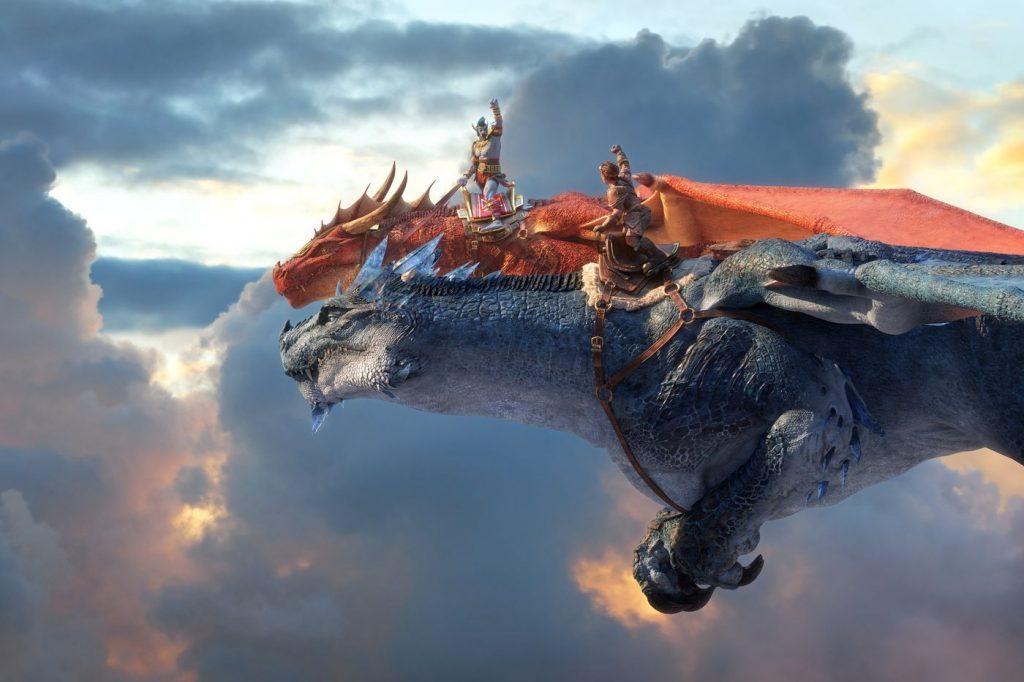‘Esports’ is the umbrella term used to describe gaming competitively at events and tournaments hosted around the world. Thousands of gamers now earn lucrative livings touring the globe and playing in front of packed-out arenas, showcasing their skills and scooping up prize pools that can sometimes reach into the tens of millions of dollars. Because of their popularity and longevity in the market, MMOs have traditionally been some of the most significant games in the Esports world. With each game being devoutly followed by legions of unique player bases, let’s take a look at some of the biggest MMOs that may shake-up the Esports industry in the coming years.
League Of Legends
Ever since its initial release in 2009, Riot Games’ League of Legends has been one of the most significant and impactful titles in the world of Esports. Launched at a time when online multiplayer was becoming the norm for competitive play, League of Legends’ emphasis on strategy, communication and teamwork provided the skill ceiling for a game that is enthralling to both play and follow. Even today, new metas and strategies are being formed by the professional teams that make their living off the game, showcasing the depths of the game’s mechanics. In 2022, League of Legends boasted over 180 million unique players, with a peak of 32 million daily players. The game’s biggest event, the Worlds, boasted a prize pool of 2.23 million, and its grand final was viewed by over 5.15 million viewers globally. Betting has even taken off as a popular pursuit for MMO fans, with these latest Esports odds at Unikrn showcasing the variety of different markets available for LoL players to explore.
Dota 2
The gaming community is one of the most passionate in the world of entertainment, with the industry filled with lively debates and discussions around some of its most popular titles, mascots and products. PS5 vs Xbox Series X, Street Fighter vs Mortal Kombat, Sonic vs Mario – the list goes on and on. Undoubtedly the one that has dominated the MMO Esports scene for well over a decade now has been centred around League of Legends and Valve’s rival title, Dota 2. Both games house some of the most devout player bases on the planet, with Dota 2 boasting roughly 680,000 concurrent users even in 2023. Renowned for its higher skill ceiling than LoL, Dota 2’s biggest tournament remains The International. Held annually, the event is hosted by developer Valve Corporation, with the company utilising a crowdfunding system from its players for its prize pool which has managed to surpass the $40 million mark in 2021.
World Of Warcraft
Is there a more influential multiplayer game than World of Warcraft? Released in 2004, the game capitalised on the popularity of Blizzard’s Warcraft series, WoW was a pioneer in showcasing the potential of mass multiplayer as a means of gaming. Since its early days, the game has continued to stay fresh and relevant through regular expansions from Blizzard and its lore has even found its way into influencing other major multiplayer games from the company such as card game Hearthstone or MOBA Heroes of the Storm. Still, the most played MMO in the market, World of Warcraft has attracted over 126 million players during its time on the shelves, averaging over 8.58 active monthly players in 2021.
Guild Wars 2
Developed by ArenaNet, Guild Wars 2 is a fantasy MMORPG that emphasised competitive play right from its outset. Following its release in 2012, the game piggybacked off the success of its predecessor and took advantage of a lack of a subscription fee model to register a concurrent player count of over 460,000. By 2021, 16 million units had been sold and by the time the game celebrated its 10-year anniversary, it had found its way onto Steam. What makes Guild Wars 2 such a viable competitive game is its commitment to consistent expansion releases, with publishers NCSoft pumping out smaller releases more regularly to keep the game’s meta as varied as possible.
Elder Scrolls Online
The Elder Scrolls has been one of the most popular role-playing franchises ever since its inception with The Elder Scrolls: Arena in 1994. The series has always been known as a single-player experience, however, that all changed in 2014 with the release of The Elder Scrolls: Online. Despite a rocky start to life, ESO has blossomed in the years since its release following the decision to scrap its controversial monthly subscription. Expansions have continued to be churned out, helping to contribute to the game’s 3 million monthly players remaining suitably enthused, which has led to more and more mounting speculation that ESO could be one of the next games to embrace the Esports revolution. Streamers have already begun to embrace informal 1v1 wagers, and the possibility of having all different alliances meeting up for organised PvP events could make for an enthralling spectacle if the servers could host such a popular occasion.






